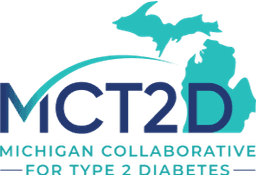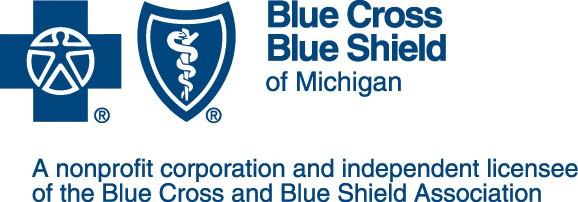NEWS & EVENTS
SPECIALTY CARE
Download, print and share the new mid-year guide to GLP-1 RA, SGLT2i, and CGM coverage in Michigan, developed by MCT2D. With close to 5000 downloads, it is among the most trafficked tool in the MCT2D Resource Library.
Go to the new July 2023 Coverage GuideFor this July 1, 2023 update, we included new changes from formularies, as payors update their formularies mid-year, effective usually June 1 or July 1. Here are changes we flagged from the previous version of the document (v2023.1.2 April 2023):
Payer | Drug/Device | Change | Source |
|---|---|---|---|
Aetna (Commercial and MA) | Mounjaro (Tirzepatide) | Changed from No Info to Not Covered | https://michmed.org/WAv7X |
Blue Cross Complete Medicaid | Mounjaro (Tirzepatide) | Changed from No Info to Non-preferred, PA required | https://michmed.org/kQYMN |
BCBSM Commercial | All GLP-1 RAs | Beginning August 15, 2023, all GLP-1 RAs will require a prior authorization process:
1. Claims auto-lookback at “point-of-sale” for either a.) previous pharmacy claim for Ty2D drug (except for metformin or another GLP-1 drug) OR b.) diagnosis code denoting T2D in medical claims history. What's a "claims auto-lookback?" scroll down for an explaination.
2. If one of those criteria is met, no PA is required. If one or more of those criteria are not met, PA will be triggered. If required, the prescriber can check a box via electronic prior auth (ePA) to confirm that the member has T2D for coverage | |
United Commercial | SGLT2is | Step therapy supplemental document updated as of 6/1/23 | https://michmed.org/Yk9Yb |
Aetna Commercial | Wegovy (Semaglutide) | Added Appendix link to Wegovy PA policy from 8-2022 | https://michmed.org/QRQMm |
BCBSM Commercial | Wegovy (Semaglutide) | Changed from Preferred to Non-preferred (for PPO and HMO plans) | https://michmed.org/kQYMN |
Medicaid McLaren | Lomaira | Changed from Non Preferred PA to Not Covered | https://michmed.org/QRr9A |
Medicaid BCC, HAP, McLaren, Meridian, Molina, Priority | Qsymia | Changed from Non Preferred PA to Not Covered | https://michmed.org/N2wn8 |
Priority Traditional & Optimized | CGMs | As of July 1st, under pharmacy benefit, beneficiary must have a prescription claim for insulin within the last six months. | https://michmed.org/dJzPq |
Medicaid | CGMs | Removed “unknown designation” and updated with June 1 2023 policy criteria: 1.) The beneficiary is under the care of an endocrinologist, a physician, or a non-physician practitioner (nurse practitioner, physician assistant, or clinical nurse specialist) who is managing their type 2 diabetes. 2.) The beneficiary is prescribed and uses insulin or an insulin pump 3.) The beneficiary tests blood glucose 2x or more per day
4.) The beneficiary or their caregiver is educated on the use of the device and is willing and able to use the CGMS. | https://michmed.org/Dyeme |
What are Claims Auto Lookbacks and how do they impact coverage?
Some insurance companies have begun using an automated process to check for prescription coverage at the point of pickup. This process is sometimes referred to as a claims auto-lookback. What is it? When a patient goes to pick up their prescription, the pharmacy team will process their order, triggering their system to look for historical information in the individual's medical or pharmacy claims data.
If certain criteria are found in that record, the drug is then approved. The MCT2D Informatics and Design routinely reviews formularies and medical and pharmacy policies from across Michigan payers. Common criteria we have found include: A historical diagnosis of type 2 diabetes, past prescription for insulin, metformin, or the preferred drug in a class when a non-preferred agent is prescribed. The look back period could be within the last 12 months, 6 months, or other, determined by the payer.
Examples include: Priority traditional and optimized plans requiring a trial of Farxiga (dapagliflozin) or Jardiance (empagliflozin) before a non-preferred agent like Invokana is covered. Priority plans with pharmacy coverage also trigger a claims auto-lookback for insulin within the past six months of a CGM being prescribed.
As of August 15, 2023, Blue Cross Blue Shield of Michigan commercial plans will require this claims auto-lookback process for GLP-1 RAs. We posted some questions about this process to BCBSM Clinical Pharmacist. Here are their responses:
Question: Is this PA an autolook back? If Dx code is included in sig for pharmacy, will that be sufficient for PA or is it an actual PA?
We utilize auto-lookback at point of sale for BCBSM members with commercial coverage.This means that when the patient picks up their diabetes GLP-1 drug from the pharmacy, the system will automatically check whether the member has a previous pharmacy claim for a Type 2 diabetes drug (except for metformin or a GLP-1 drug) OR a diagnosis code denoting Type 2 diabetes in their medical claims history. The lookback is a 12-month retrospective period.If the member meets either of these criterion at point of sale, the diabetes GLP-1 claim will pay, and no PA is required. If the member does not meet either of these criterion at point of sale, a prior authorization will be required for coverage.If a PA is required, the prescriber can simply check a box via electronic prior authorization (ePA) to confirm that the member has Type 2 diabetes for coverage.
Question: It mentions that PCPs can contact them in advance and obtain a PA. How is this done?
Providers can request coverage for the diabetes GLP-1 products through electronic prior authorization (ePA).As noted above, we require that the provider attest that the member has a diagnosis of Type 2 diabetes if that member does not meet the automatic lookback criteria at point of sale. On the ePA form, the provider is asked to answer the following question via a “Y” or “N” checkbox: “Does the patient have a diagnosis of Type 2 diabetes?”For instructions on how to submit an ePA, please refer to our public website here: For Providers: Authorization and step therapy | BCBSM.Please note that as of June 1, 2023, Public Act 60 now requires all providers in the state of Michigan to utilize ePA for all PA requests.
Question: Confirm this NEW policy ONLY applies to commercial patients with a NEW prescription for a GLP1/GIP? If patient was previously on a GLP and is being switched from dula to sema or sema to tirzepatide – will this be considered NEW?
Answer: We originally implemented the automatic pharmacy claims lookback for the diabetes GLP-1 drugs on February 1, 2023 for commercially insured members who were new starts to diabetes GLP-1 therapy. However, we also grandfathered-in members who were already taking these drugs.When we grandfathered-in the members who were already utilizing these products, they were not required to provide proof of diagnosis. It is possible that certain members who were grandfathered-in to coverage do not actually have an appropriate diagnosis of Type 2 diabetes, and may have been using the GLP-1 drugs indicated for T2D off-label for weight loss. Therefore, starting August 15, we will require the members who were previously grandfathered-in to provide proof of Type 2 diabetes diagnosis to prevent any further off-label use of the diabetes GLP-1 products.To answer your second question, yes, if a patient is being switched to a different GLP-1 product, they will be required to meet the lookback criteria at point-of-sale for coverage, OR have their provider submit an ePA to confirm their diagnosis if they do not meet the automatic lookback criteria.Additionally, the changes described above for 8/15 apply to the following GLP-1 products:
- Bydureon*
- Byetta*
- Mounjaro (GLP/GIP product)
- Ozempic
- Rybelsus
- Trulicity
- Victoza
*Byetta and Bydureon are Nonformulary (not covered) for members with Custom, Custom Select, or Clinical pharmacy drug formularies. Byetta and Bydureon are only covered for members with the Preferred Drug List formulary.
Have you noticed an error with our tool? Reach out to our team by email to let us know: ccteam@mct2d.org. If you are a primary care member of MCT2D, you can earn physician-level engagement VBR credit for reporting when our Coverage Guide information does not match your clinical encounter!



